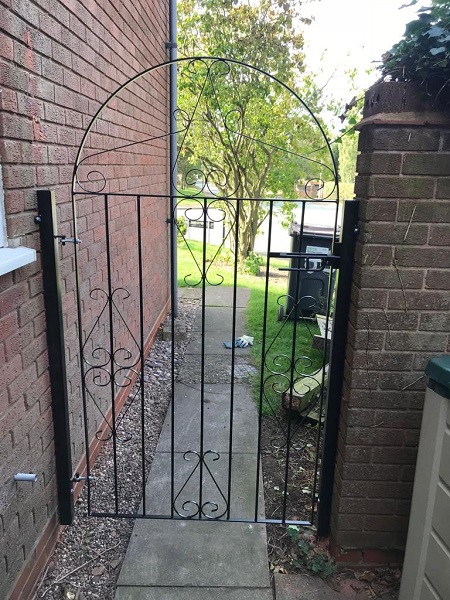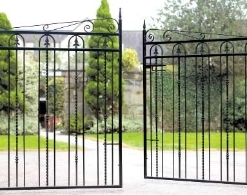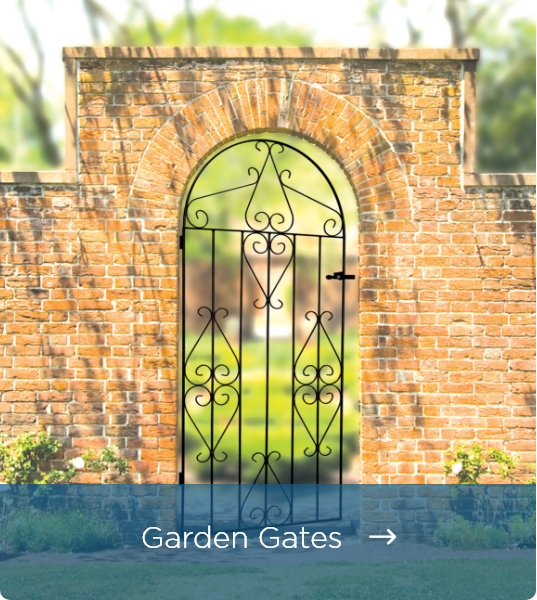Garden gates add character to your home, increase value, boost security and ultimately make that grand moment of arriving home from work more enjoyable. If you’re setting yourself the task of installing your new garden gate, it is important to ensure the installation is carried out to a high standard to avoid the risk of damage and break-ins. With this in mind, have you considered how high you should install your garden gate from the ground?
.jpg)

Avoid going too low
Depending on the material, installing a garden gate low to the ground could cause a considerable amount of damage over time. Steel can rust and corrode. Timber can also rot when exposed to the elements, so why take years off your gate before you get started? Don’t get us wrong, of course everything will wear over time and require a bit of maintenance to keep it looking its best. However, if your garden gate is nearly making contact with the ground where water and debris can build up, it is more likely to become weak and unsightly. Also, if the ground is uneven, your gate will either not open at all or will drag along the ground. Ideally, you want the space below your gate to be high enough to allow for free movement, but at the same time - not too high that there’s a large open gap.
The Pitfalls of Installing Gates Too High
A gate that is fixed too high off the ground will look like it’s floating, and can cause a number of security issues. A large gap underneath the gate can encourage unwanted visitors to look into your property, eyeing up any garden possessions they could get their hands on. It also imposes a risk to small children and pets, who are able to crawl and escape underneath.
How Low Can You Go?
So, with that in mind - how low can you go? Generally speaking, we recommend a gap at the bottom of approximately 50mm (2”) to allow for ground clearance. Of course, there are no strict rules in place as to how high or low your garden gate should be fixed, this is entirely up to you depending on the ground conditions and your preferences.
Do you need planning permission to install a garden gate?
Planning permission is a request to your local council to carry out building work on your property. It is important you are granted permission when required to avoid the risk of illegal construction.
When it comes to garden gates, for most homeowners, installing or replacing an existing garden gate is usually no problem, however this can differ depending on your property type and the height of your garden gate. In most cases, installing a garden gate will not require planning permission unless the height of the gate exceeds 2 metres from ground level or 1 metre if erected next to a highway or public path.
If you live in a conservation area or listed building, you will need to have permission granted from the council before proceeding with any work - even if you adhere to the height restrictions. Failure to do so may result in a hefty fine and removal of your new gate. If you’re unsure, it won’t hurt to reach out to your local council to ensure you are adhering to the regulations in your area.
Are you looking for new garden gates?
Here at Metal Gates Direct, we are home to an extensive range of metal garden gates, driveway gates, side gates, estate gates, railings, fencing and more. Our quality products and fantastic value for money puts us at the forefront of our competitors. All of our gates are manufactured by leading UK suppliers, so you can rest assured the quality is second to none. Whether you are looking for an ornate, traditional wrought iron style gate or perhaps something a little more contemporary, like our modern, lightweight aluminium gates. We are confident you will find exactly what you’re looking for, at a price that suits you.
Should you have any questions or enquiries, please do not hesitate to reach out by phone on 0844 804 5577 or send us an email at sales@metalgatesdirect.co.uk.




